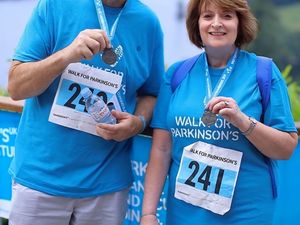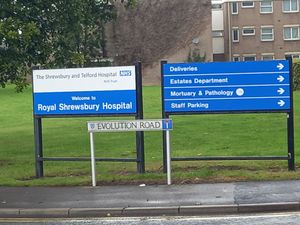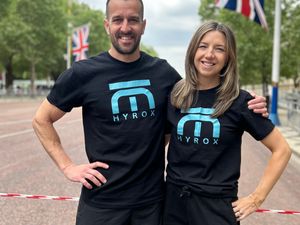New jab could revolutionise bowel cancer treatment - and it is being used first in the West Midlands
A man with bowel cancer has become the first person in England to be treated with a personalised jab for the disease on the NHS.
Watch more of our videos on ShotsTV.com
and on Freeview 262 or Freely 565
Health leaders hailed the treatment in the West Midlands as "a landmark moment" for patients and the NHS.
Officials said thousands more people are expected to be recruited to take part in vaccine trials for various forms of cancer in the coming years as part of a new scheme.
The first patient to receive the vaccine for bowel cancer was Elliot Pfebve, 55, who was diagnosed with the disease after a routine health check with his GP.
After having a 30cm tumour removed from his large intestine, he was referred to the Queen Elizabeth Hospital Birmingham for chemotherapy and to take part in the clinical trial.
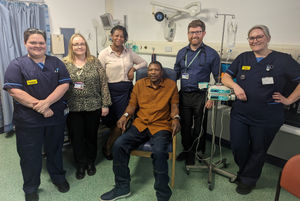
The father-of-four from the West Midlands, who is a higher education lecturer, said: "Taking part in this trial tallies with my profession as a lecturer, and as a community-centred person.
"I want to impact other people's lives positively and help them realise their potential.
"Through the potential of this trial, if it is successful, it may help thousands, if not millions, of people, so they can have hope and may not experience all I have gone through. I hope this will help other people."
The vaccine was created using mRNA technology and is being jointly developed by biopharmaceutical companies BioNTech and Genentech.
It works by looking for specific mutations in a patient's tumour, with clinicians using the information to create a personalised treatment.
The jab is designed to stimulate a patient's immune system after surgery to remove tumours so it can recognise and attack any remaining cancer cells.
Dr Victoria Kunene, a consultant clinical oncologist at Queen Elizabeth Hospital Birmingham and principal investigator for the trial, said: "The investigational cancer vaccines are based on mRNA and are created by analysing a patient's tumour to identify mutations specific to their own cancer.
"Using this information, we can create an individualised investigational cancer vaccine, but it is too early yet to say if these will be successful, though we are extremely hopeful.
"Based on the limited data we currently have of the in-body response to the vaccine, this could prove to be a significant and positive development for patients, but more data is yet needed and we continue to recruit suitable patients to the trial to establish this further."

The trial that Mr Pfebve took part in is one of several that will be taking place at NHS trusts across the country.
It forms part of NHS England's Cancer Vaccine Launch Pad, which is working to fast-track patients to get vaccines at the earliest opportunity.
People who wish to take part will have a blood test and tissue sample taken. If they are eligible, they will be referred to the nearest NHS hospital involved in the scheme.
Thirty hospitals in England are signed up to the initiative, with more to join in the coming months.
According to NHS England, the scheme will work with a range of pharmaceutical companies and could expand to include patients with other cancers such as pancreatic and lung cancer.
NHS England chief executive Amanda Pritchard said: "Seeing Elliot receive his first treatment as part of the Cancer Vaccine Launch Pad is a landmark moment for patients and the health service as we seek to develop better and more effective ways to stop this disease.
"Thanks to advances in care and treatment, cancer survival is at an all-time high in this country, but these vaccine trials could one day offer us a way of vaccinating people against their own cancer to help save more lives.
"The NHS is in a unique position to deliver this kind of world-leading research at size and scale, and as more of these trials get up and running at hospitals across the country, our national match-making service will ensure as many eligible patients as possible get the opportunity to access them."
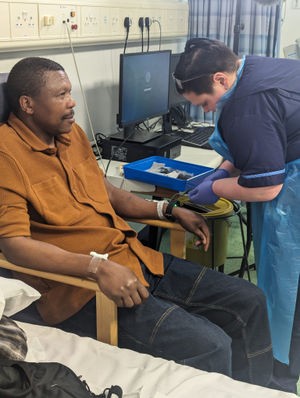
Professor Peter Johnson, national clinical director for cancer at the NHS, said: "We know that even after a successful operation, cancers can sometimes return because a few cancer cells are left in the body, but using a vaccine to target those remaining cells may be a way to stop this happening."
Trials have enrolled dozens of people, NHS England said, with the majority expected to take part from 2026 onwards.
Prof Johnson said: "Access to clinical trials could provide another option for patients and their families, and I'm delighted that through our national launch pad we will be widening the opportunities to be part of these trials for many more people, with thousands of patients expected to be recruited in the next year."
Iain Foulkes, executive director of research and innovation at Cancer Research UK, said: "It's incredibly exciting that patients in England are beginning to access personalised cancer vaccines for bowel cancer.
"This technology pioneers the use of mRNA-based vaccines to sensitise people's immune system and in turn detect and target cancer at its earliest stages.
"Clinical trials like this are vital in helping more people live longer, better lives, free from the fear of cancer.
"If successful, the vaccine will be a game changer in preventing the onset or return of bowel cancer."


